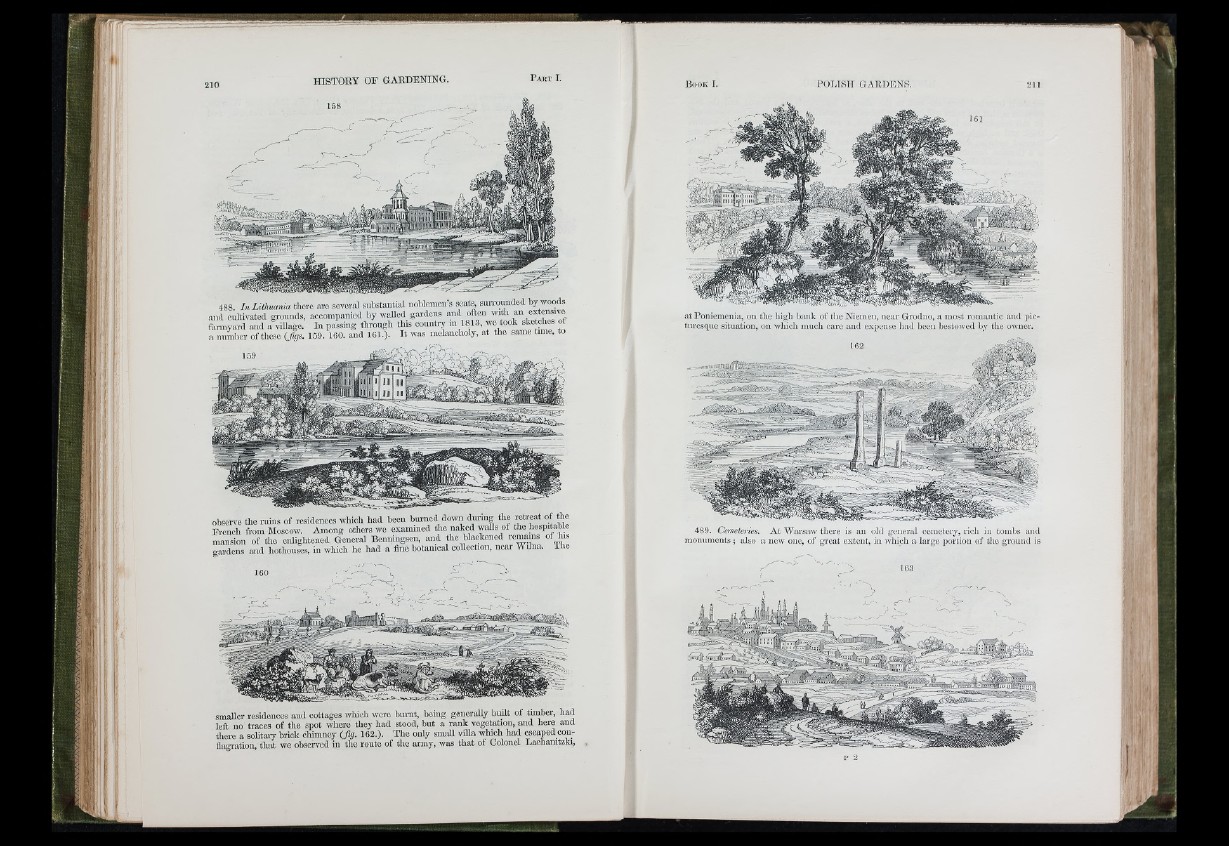
¥
488. I n L i t l im ia tlicro arc scToral .siiEstantial noUcmcn’s scats suiToimdod by woods
and cRltivated grmmds, accompanied by walled g.ardens and often witli an effiensiv e
farmyard and a village. In passing througli this country m 1813, ft® f t * ft
a number of these (Jigs. 159. 160. and 161.). I t was melancholy, at the same tunc, to
observe the ruins of residences which had been burned down dnrmg the reb e ft of l e
French from Mo.scow. Among otliers we examined the naked walls of tho hospitaUe
man.sion of the enlightened General Benningsen, and the blackened remains of his
gardens and hothouses, in which he had a fino botanical collection, neai Wilna. Tho
smaller residences and cottages wliicli were burnt, being geiioraUy built of ttmber, had
left no traces of the spot where they had stood, but a rank vegetation, and here and
there a solitary brick cliimney (Jig. 162.). The only smaU villa which had escaped conflagration,
that we observed in the route of the army, was that of Colonel Lachamtzki,
Jit Poniemcniu, on the high bank of tlic Nicmoii, near Grodno, a most romantic and pic-
f:urcsque situation, <.)n which much carc and expense liad been bestowed by the owner.
489. Cemeteries. A t Warsaw there is au old general cemetery, rich in tombs and
monuments; also a new one, of great extent, in which a large portion of the ground is
163